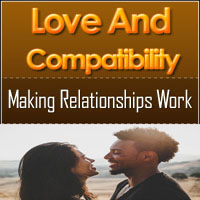


Nurturing Long-Term Relationships

In the realm of romantic relationships, there's a profound beauty in the enduring commitment of long-term partnerships. These relationships, which span years and often a lifetime, are a testament to the strength of love, communication, and resilience. In this article, we explore the dynamics and keys to sustaining a long-term relationship.
The Foundation Of Long-Term Relationships
Long-term relationships are built on a sturdy foundation of love, trust, and mutual respect. Unlike short-lived romances, these partnerships require ongoing care, attention, and adaptation to stand the test of time. While there's no one-size-fits-all formula for sustaining a long-term relationship, several common elements contribute to their success:
1. Communication: Open, honest, and effective communication is the lifeblood of any lasting relationship. Partners must feel comfortable sharing their thoughts, feelings, and concerns. A willingness to listen and empathize is equally essential.
2. Trust: Trust is the cornerstone of a long-lasting relationship. It takes time to build and can be fragile, but once established, it fosters emotional security and a sense of safety within the partnership.
3. Compatibility: Long-term partners often share common values, interests, and life goals. Compatibility ensures that the relationship remains fulfilling and aligned with the partners' evolving aspirations.
4. Compromise: Every relationship encounters disagreements and conflicts. The ability to compromise and find solutions that benefit both partners is crucial to maintaining harmony.
5. Support And Independence: Partners in long-term relationships should support each other's individual growth and independence. Healthy relationships strike a balance between togetherness and personal space.
The Challenges Of Long-Term Relationships
While long-term relationships can be incredibly rewarding, they are not without their challenges. Over time, couples may face issues such as complacency, routine, and external pressures. It's vital to address these challenges proactively:
1. Complacency: The comfort of a long-term relationship can sometimes lead to complacency. It's important to continue nurturing the relationship and not take it for granted.
2. Routine: Routine can lead to boredom and a sense of predictability. To keep the spark alive, couples should explore new experiences and maintain a sense of adventure.
3. External Pressures: Outside influences, such as work stress, family obligations, and financial concerns, can affect a relationship. Couples must work together to manage these pressures and maintain a strong bond.
The Rewards Of Long-Term Relationships
Long-term relationships offer a range of rewards that can be deeply fulfilling:
1. Emotional Depth: Over time, the emotional connection deepens, resulting in a profound sense of intimacy and understanding.
2. Shared History: Partners in long-term relationships create a shared history that bonds them in unique and meaningful ways.
3. Lifelong Partnership: A strong long-term relationship provides a consistent source of emotional support and companionship throughout life's ups and downs.
Long-term relationships are a testament to love, commitment, and the capacity of human connection to stand the test of time. While they require effort, communication, and adaptability, the rewards of a fulfilling, enduring partnership make the journey more than worthwhile. By cultivating the key elements of trust, communication, and compatibility, couples can strengthen their bonds and navigate the challenges that come their way, ultimately fostering a love that endures.
The Path To Personal Growth
 Acceptance: Accepting that you've made a mistake is a crucial part of the process. It's easy to become defensive or deny our errors, but true growth comes from acknowledging our imperfections. By embracing your mistakes, you open the door to self-improvement.
Acceptance: Accepting that you've made a mistake is a crucial part of the process. It's easy to become defensive or deny our errors, but true growth comes from acknowledging our imperfections. By embracing your mistakes, you open the door to self-improvement.
Identifying Patterns: Often, our mistakes are not isolated incidents but part of a pattern of behavior or decision-making. By identifying these patterns, you can take proactive steps to break them. Recognizing your tendencies can prevent you from repeating the same mistakes.
Seeking Feedback: Don't hesitate to seek feedback from trusted friends, mentors, or colleagues. They can offer valuable perspectives on your actions and decisions. Constructive criticism can provide fresh insights and help you see your mistakes from different angles.
Empathy: Extend empathy towards yourself. Mistakes are part of the human experience, and beating yourself up over them only hinders your growth. Treat yourself with the same kindness and understanding you would offer to a friend.
Taking Responsibility: Taking responsibility for your mistakes is a sign of maturity. It means owning up to your actions, apologizing when necessary, and making amends when possible. It's a step toward rectifying the situation and preventing similar errors in the future.
Goal Setting: Learning from your mistakes involves setting goals for personal growth. Consider what changes you can make to avoid repeating past errors. Establish concrete steps and a timeline for your self-improvement journey.


The Power Of Rekindling Romance And Finding A New Beginning
 Love again requires us to embrace vulnerability. This means allowing yourself to open up to the possibility of being hurt once more. Vulnerability is not a sign of weakness but rather an indication of your courage to be authentic and open in your connections. It's about letting down your guard and allowing someone new into your heart, even when it feels scary.
Love again requires us to embrace vulnerability. This means allowing yourself to open up to the possibility of being hurt once more. Vulnerability is not a sign of weakness but rather an indication of your courage to be authentic and open in your connections. It's about letting down your guard and allowing someone new into your heart, even when it feels scary.
Taking Things Slow
Love again often flourishes when we take things slow. Rushing into a new relationship might not allow you to process the past fully. Take the time to get to know someone on a deep level, understand their values, and let them know yours. Building a strong foundation takes time, but it's worth it in the end.
Learning From The Past
One of the most valuable aspects of learning to love again is the wisdom gained from past experiences. Reflect on the lessons your previous relationships taught you. Understand the red flags and make conscious choices to avoid repeating the same mistakes. Learning from the past is an essential step toward creating healthier and more fulfilling relationships in the future.
Support And Connection
Loving again can be made more comfortable by seeking support and connection. Friends, family, or even therapy can provide a safe space for you to express your feelings and gain insight. Connecting with others who have been through similar experiences can also provide a sense of camaraderie and shared understanding.
A Journey Of Discovery And Depth
 A Solid Foundation
A Solid Foundation
Best friends in love have already established a rock-solid foundation of friendship. They've spent countless hours together, sharing laughter, secrets, and a deep understanding of each other's lives. This foundation provides a unique advantage, as it's built on trust and the knowledge that these individuals genuinely care for one another.
Mutual Understanding
One of the most beautiful aspects of best friends in love is the level of mutual understanding they share. They've seen each other at their best and worst, knowing the quirks, fears, and vulnerabilities that make them who they are. This profound understanding paves the way for a romantic relationship rooted in empathy and respect.
Shared Memories And Experiences
Best friends in love often have a treasure trove of shared memories and experiences. Whether it's the adventures they've embarked on together, the challenges they've overcome, or the inside jokes that only they understand, these shared moments create a unique and lasting connection that enriches their love story.
The Delicate Transition
The transition from friendship to romance is a delicate and thrilling phase. It often starts with subtle signs of attraction, growing feelings of fondness, or a realization that the bond they share runs deeper than they ever anticipated. This transition is typically marked by open and honest conversations about their evolving emotions.
A Deeper Connection
As best friends become lovers, their connection deepens. The love they share is unique, as it combines the comfort of friendship with the passion and romance of a romantic relationship. This depth allows them to experience the best of both worlds, a profound emotional connection, and a vibrant romantic partnership.
Navigating Challenges
The journey from best friends to lovers is not without its challenges. There may be moments of doubt or hesitation, but these can be overcome with patience, understanding, and effective communication. Navigating the transition requires both parties to adapt and grow together, addressing any bumps in the road with grace and love.






Exploring The Beauty And Complexity
 One of the most significant advantages of intergenerational relationships is the exchange of wisdom and knowledge. The older generation typically brings decades of life experience, while the younger generation offers fresh perspectives and insights. These interactions can lead to valuable learning experiences, as each generation benefits from the other's unique perspective. Older individuals can share their life lessons, and younger ones can offer a glimpse into contemporary issues, technology, and evolving societal norms.
One of the most significant advantages of intergenerational relationships is the exchange of wisdom and knowledge. The older generation typically brings decades of life experience, while the younger generation offers fresh perspectives and insights. These interactions can lead to valuable learning experiences, as each generation benefits from the other's unique perspective. Older individuals can share their life lessons, and younger ones can offer a glimpse into contemporary issues, technology, and evolving societal norms.
Mentorship is a central theme in many intergenerational relationships. This can take various forms, such as a seasoned professional mentoring a young colleague, or a senior community member guiding a teenager through life's challenges. Mentorship often results in personal growth, improved skills, and enhanced self-confidence for the younger person, while the mentor may find renewed purpose and satisfaction in passing on their knowledge.
Intergenerational relationships also play a crucial role in preserving and sharing cultural heritage and traditions. Grandparents, for example, often impart stories, customs, and family histories to their grandchildren, keeping these traditions alive for future generations. These connections are a testament to the significance of preserving cultural identity and continuity through time.
The emotional support that intergenerational relationships provide is another essential element. Many individuals, young and old, find comfort in the companionship and understanding offered by those from different generations. In a world that can sometimes feel isolating, these relationships create a sense of belonging and emotional security.
Navigating The Modern Landscape Of Romance
 3. Diverse Dating Pool
3. Diverse Dating Pool
The digital world has shattered geographical boundaries, allowing people to connect with individuals from different walks of life. This has led to greater diversity in the dating pool, enabling people to explore relationships with partners they might never have encountered otherwise. Cultural, ethnic, and geographic differences are now bridges rather than barriers to love.
4. Finding Love From Home
The accessibility of potential partners and the ability to screen matches has transformed the dating experience. Users can review profiles, read about interests and values, and engage in meaningful conversations before deciding to meet in person. The result is a more informed, selective, and efficient dating process.
5. Online Relationship Building
Couples in the digital world often find that they can build strong connections even before meeting in person. Through thoughtful messages, video chats, and shared experiences, individuals can develop deep emotional bonds, creating a strong foundation for their relationship.
6. Shifting Dynamics In Dating
Traditional gender roles and expectations in dating and relationships have evolved. The digital world has given rise to more egalitarian dynamics in partnerships. Women and men alike have opportunities to take the lead, express themselves, and navigate relationships in a way that feels authentic to them.